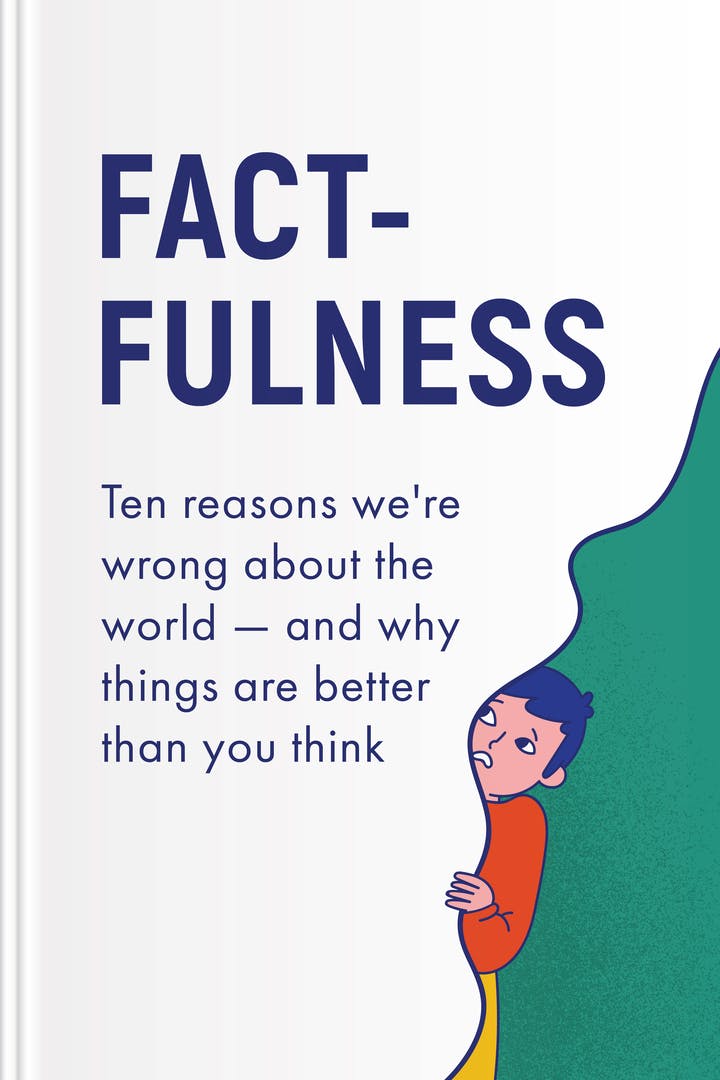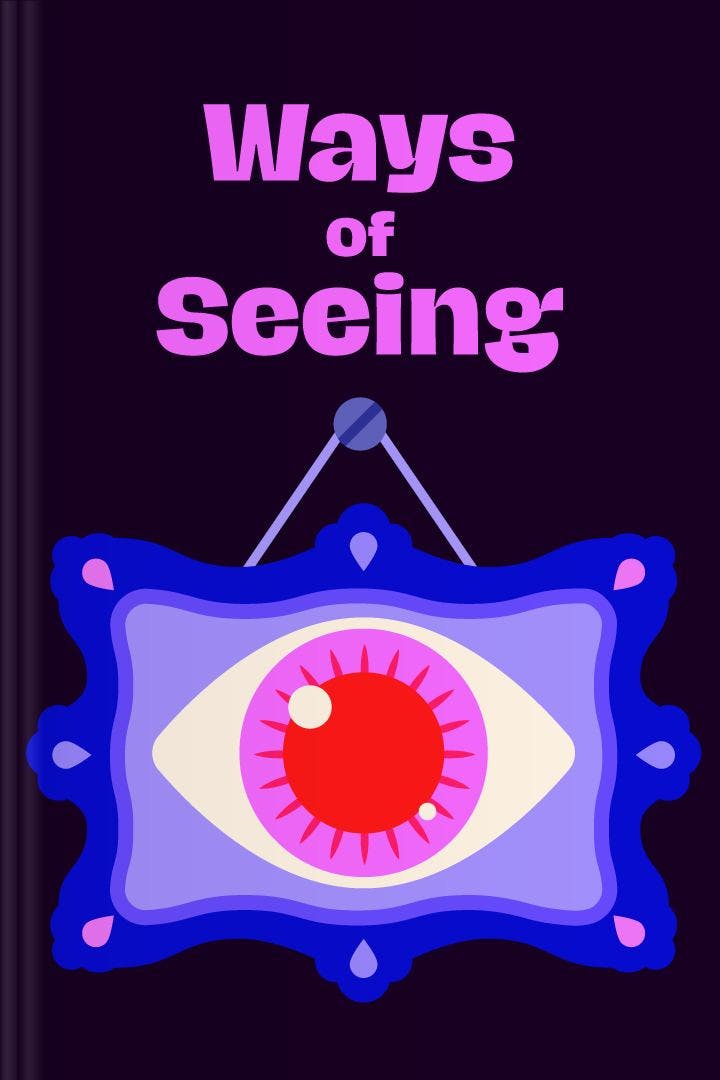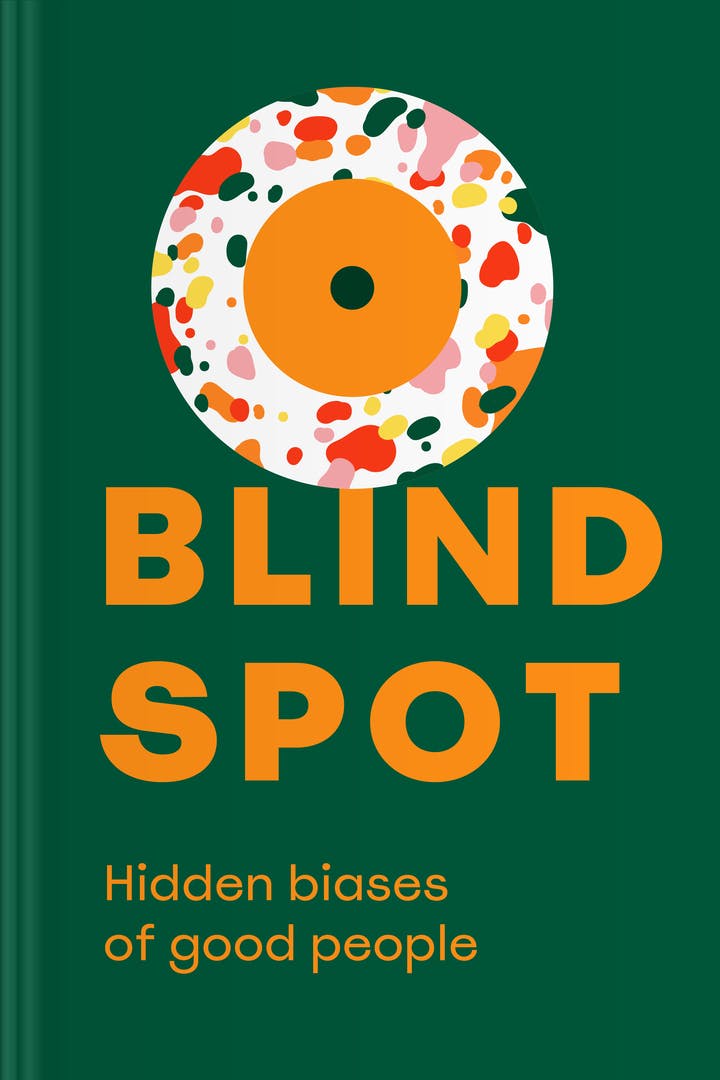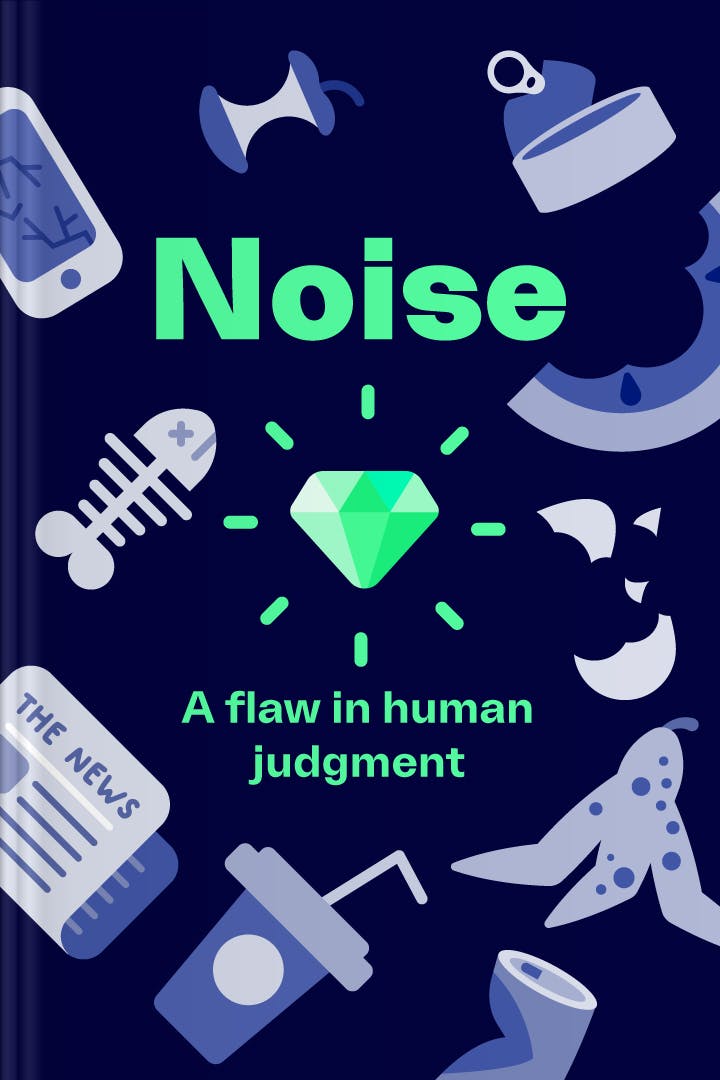4 Best Books On Perception
Discover a vast selection of books on perception, explore the depths of human cognition, and gain insights into the fascinating world of the mind.
 1
1Factfulness
by Hans Rosling, Anna Rosling Rönnlund, Ola Rosling
What is Factfulness about?
"Factfulness" challenges common misconceptions about the state of the world by presenting ten reasons why our understanding is often flawed. Drawing on extensive data and personal experiences, the authors argue that despite prevailing negativity, global progress has been significant. They provide a refreshing perspective on topics such as poverty, education, and health, urging readers to adopt a fact-based worldview and embrace a more optimistic outlook on the future.
Who should read Factfulness
Students and educators seeking a fresh perspective on global issues.
Individuals interested in challenging their preconceived notions about the world.
Policy makers and leaders looking for evidence-based insights on progress.
 2
2Ways of Seeing
by John Berger
What is Ways of Seeing about?
"Ways of Seeing" by John Berger is a thought-provoking exploration of how we perceive and interpret visual images in our society. Through a combination of essays and images, Berger challenges traditional notions of art, advertising, and the male gaze, urging readers to question the power dynamics and hidden meanings behind what we see. This book offers a fresh perspective on the ways in which visual culture shapes our understanding of the world around us.
Who should read Ways of Seeing
Art enthusiasts seeking a fresh perspective on visual culture.
Students studying art history or visual communication.
Individuals interested in exploring the social and political aspects of art.
 3
3Blindspot
by Mahzarin R. Banaji and Anthony G. Greenwald
What is Blindspot about?
"Blindspot: Hidden Biases of Good People" delves into the unconscious biases that exist within all individuals, regardless of their intentions or beliefs. Written by Mahzarin R. Banaji and Anthony G. Greenwald, this thought-provoking book explores the science behind implicit biases, shedding light on how they shape our perceptions, decisions, and actions. Through compelling research and real-life examples, the authors challenge readers to confront their own blindspots and strive for a more inclusive and equitable society.
Who should read Blindspot
Individuals interested in understanding and challenging their unconscious biases.
Psychologists and researchers studying implicit biases and human behavior.
Professionals seeking to create inclusive environments and reduce discrimination.
 4
4Noise
by Daniel Kahneman, Ph.D., Olivier Sibony, PhD, Cass R. Sunstein
What is Noise about?
In this thought-provoking book, three renowned authors delve into the fascinating world of human judgment and decision-making. Exploring the concept of noise, they reveal how seemingly identical decisions can vary widely due to random factors, biases, and inconsistencies. Drawing on extensive research and real-life examples, the authors challenge our assumptions about rationality and offer practical insights to reduce noise and improve decision-making in various fields, from medicine to law. A compelling read that sheds light on the flaws in our judgment and the potential for improvement.
Who should read Noise
Individuals interested in understanding the impact of noise on decision-making.
Psychologists and researchers studying cognitive biases and judgment errors.
Professionals seeking to improve their decision-making processes and outcomes.
